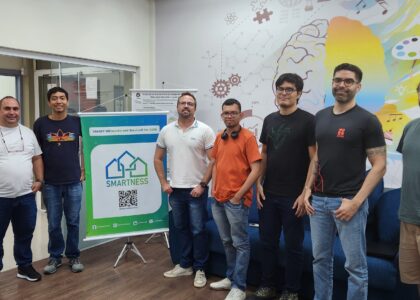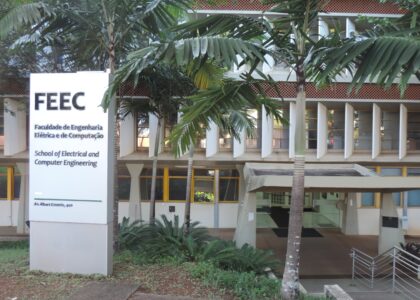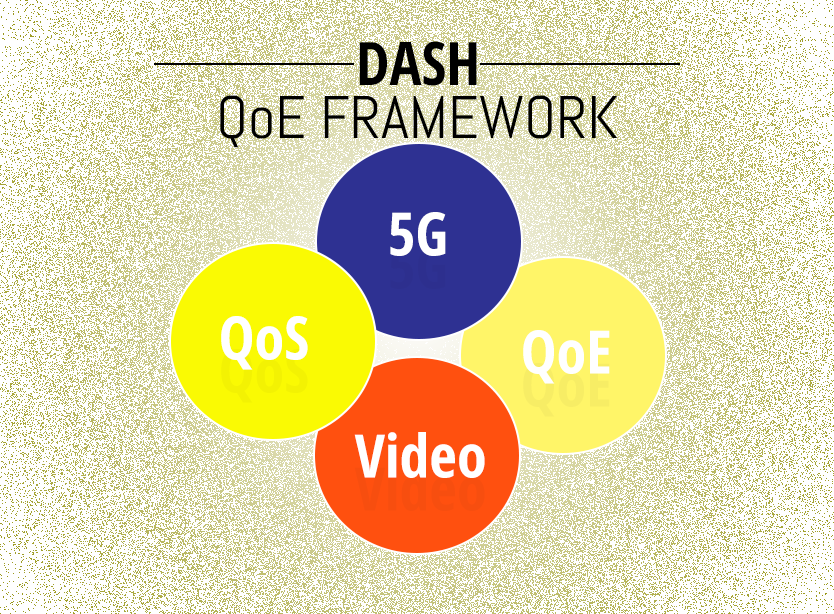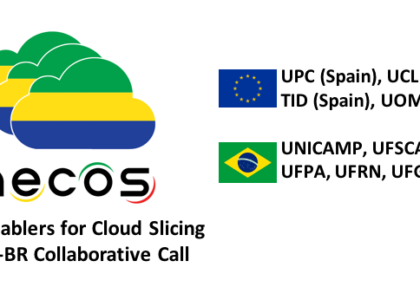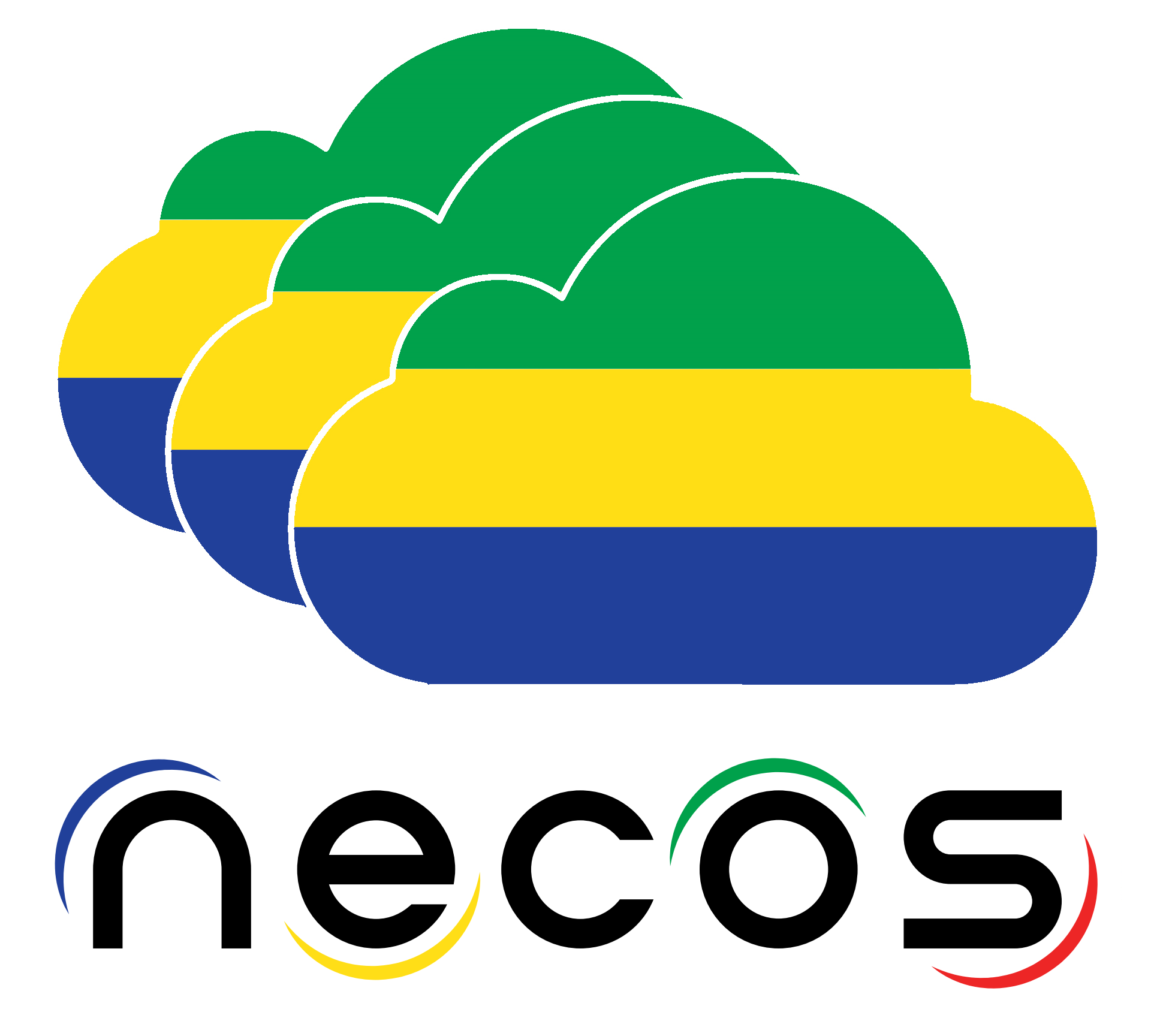DrIVE Associated Team: Distributed Intelligent Vehicular Environment – Enabling ITS through programmable networks (2018-2020)
FAPESP Grant number 2017/50361-0 (CNRS/FAPESP, http://www.fapesp.br/11608)
DrIVE Objectives
Transportation systems are a key component of our society’s critical infrastructure and are expected to experience transformative changes during the current “information age”. A noteworthy example is the automotive industry which has been disrupted by technologies such as vehicle-to-infrastructure (V2I) and vehicle-to-vehicle (V2V) communication.
Vehicular communication is expected to be one of the key technological enablers of next-generation transportation systems, also known as Intelligent Transport Systems (ITS). In ITS, vehicles exchange information to self-drive, coordinate road traffic, communicate road conditions, avoid accidents, as well as support infotainment services.
ITS services and applications pose significant challenges due to their stringent low latency, reliability, scalability, and geographic decentralization requirements. Leveraging the emergence of the Software-Defined Networking (SDN) paradigm, Software-Defined Vehicular Ad hoc NETwork (SD-VANET) architectures have been proposed as a way to address such requirements. SD-VANETs rely on the separation between network control and data planes, resulting in increased network programmability that
enables vehicles to react and adjust to dynamically changing environmental- and networking conditions. They have demonstrated the benefits of using SDN’s decoupling of network control from data forwarding when compared to traditional” VANET architectures (e.g., employing multi-hop ad hoc network routing. However, SD-VANETs and other existing solutions either: (1) rely on logically centralized control plane, or (2) use a static control distribution approach, both of which are not compatible with ITS’ QoS needs.
We contend that ITS’ stringent scalability, latency, reliability, and decentralization requirements call for a distributed and flexible network control plane, decoupled from the data plane, that can automatically and dynamically adjust to current environment and network conditions. As such, the main objectives of the DrIVE associated team are to:
Develop a programmable network control plane that will dynamically adjust to current environment conditions and network characteristics to support ITS’ scalability, quality of service (QoS), and decentralization requirements, and
Apply the proposed distributed network control plane framework to ITS services and applications, such as road hazard warning, autonomous- and self-driving vehicles, and passenger-centric services (e.g., infotainment and video streaming).
Work Plan
The following activities will be launched in the project’s first year and will be carried out concurrently in subsequent years.
- Vehicle-controller discovery: Our preliminary framework allows vehicles to establish a connection with a controller to exchange control and data packets. Even though we have not yet explored how such connection can be established dynamically, it is an important challenge that we plan to address. OpenFlow allows multiple controller connections for a single switch with the restriction of defining a single controller in charge (or a master controller). However, it does not handle dynamic switch-controller association.
- Vehicle-to-vehicle communication: One of the challenges is to provide the controller with sufficient information to control a gateway in a secure way. For instance, the controller should be aware of nodes in the gateways’ vicinity, including their position. Such information would enable the controller to define message relevance areas, i.e., decide which nodes should receive which data messages. Secure authentication mechanisms between controllers, switches and gateways will be developed.
- Handling mobile controllers: Disconnections between vehicles and controllers may happen very often in ITS due to mobility, RSU coverage, etc. One way to mitigate control plane disconnections is to use mobile controllers. For example, a gateway could act as a controller through a delegation process, i.e., a higher layer controller could offload tasks to the new instantiated controller.
- Instrumentation and monitoring: Allowing controller(s) to get an accurate view of available network resources (e.g., link bandwidth, switch capacities) and flow requirements in a dynamic way and with low overhead is critical. Indeed, controller(s) need to have a precise and up to date vision of network resources in order to make optimal or close-to-optimal decisions and place the NFV at the most strategic locations in the network. It is essential to identify possible bottlenecks in a timely manner, yet ensure monitoring does not impact data plane performance.
- Prototyping and testing: We will assess the performance of our proposed algorithms and protocols using network simulation (e.g., ns-3), emulation (e.g., mininet-wifi), and reproducible experimentation using testbeds. Some extensions of these evaluation tools and platforms may have to be developed to allow experimenting with ITS-like scenarios.
Work Plan for 2020
- Explore machine intelligence mechanisms for control plane delegation based on controller load prediction and latency optimization objectives.
- Machine learning will be applied to the prediction of routes (car trajectory) towards faster datapath handover and service pre-provisioning at new, closeby edge computing facilities.
- MEC assignment problem will be explored driven by latency-sensitive ITS application dataplane functions (e.g., < 20ms). Service latency optimization will be explored with centralized and distributed controller assignment approaches.
- Prototyping and testing. We plan to integrate Mininet-WiFi within R2lab to extend the range of possible ITS scenarios in R2lab. Mininet-WiFi will continue to be extended as needed by the target ITS experiments. We foresee developments in integration with Google maps, import /export of traces, enhanced instrumentation to stream metrics in a telemetry-like fashion.
Testbeds and Software
Publications
Joint Publications
- [JX] Tingting Yuan, Wilson Borba da Rocha Neto, Christian Rothenberg, Katia Obraczka, Chadi Barakat, Thierry Turletti,”Harnessing Machine Learning for Next-Generation Intelligent Transportation Systems: A Survey“, https://hal.inria.fr/hal-02284820, (in submission).
- [J2] Anuj Kaul, Li Xue, Katia Obraczka, Mateus Santos, Thierry Turletti, “Handover and Load Balancing for Distributed Network Control: Applications in ITS Message Dissemination“, 27th International Conference on Computer Communications and Networks (ICCCN 2018) , Jul 2018, Hangzhou, China.
- [J1] Osama Arouk, Thierry Turletti, Navid Nikaein, Katia Obraczka, “Cost Optimization of Cloud-RAN Planning and Provisioning for 5G Networks“, IEEE International Conference on Communications (ICC), May 2018, Kansa City, MO, United States.
- [J0] Anuj Kaul, Katia Obraczka, Mateus Santos, Christian Rothenberg, Thierry Turletti, “Dynamically Distributed Network Control for Message Dissemination in ITS“, IEEE/ACM DS-RT 21st International Symposium on Distributed Simulation and Real Time Applications, Oct 2017, Rome, Italy (prior work to DrIVE associated team).
Related Publications
- [5] Houssam Elbouanani, Chadi Barakat, Guillaume Urvoy-Keller, Dino Lopez-Pacheco, “Collaborative Traffic Measurement in Virtualized Data Center Networks“, Poster at IEEE CloudNet’19, 4-6 Nov., Coimbra, Portugal.
- [4] K. Matsuzono�, H. Asaeda�, Indukala Naladala, Thierry Turletti, “Efficient Pull-based Mobile Video Streaming leveraging In-Network Functions“, IEEE 17th Annual Consumer Communications & Networking Conference (CCNC), Jan 2020, Las Vegas, USA.
- [3] Thierry Parmentelat, Thierry Turletti, Walid Dabbous, Naoufal Mahfoudi, Francesco Bronzino, “nepi-ng: an efficient experiment control tool in R2lab“, ACM WiNTECH 2018 – 12th ACM International Workshop on Wireless Network Testbeds, Experimental evaluation & CHaracterization, Nov 2018, New Delhi, India. pp.1-8.
- [2] Yonathan Bleyfuesz, Thierry Parmentelat, Thierry Turletti, Farzaneh Pakzad, Mohamed Mahfoudi, Walid Dabbous, “Demo: Using nepi-ng for Mesh Networks Experiments“, The 12th ACM International Workshop on Wireless Network Testbeds, Experimental evaluation & CHaracterization (WINTECH), Nov 2018, New Delhi, India.
- [1] Indukala Naladala, “Integrating R2lab with ns-3” B.T. in CS and Engineering Internship report, NITK Mangalore, July 2018.
Visits between Partners
- Oct 21 – Nov 8, 2019: Tingting Yuan 3-weeks visit at UNICAMP
- Oct 21-24, 2019: meeting at UNICAMP (visit of Tingting Yuan and Thierry Turletti)
- July 10-12, 2019: meeting at Inria (visit of Christian Esteve Rothenberg and Katia Obraczka)
- December 3-7, 2018: meeting at UNICAMP (visit of Katia Obraczka and Thierry Turletti)
- July 17-31, 2018: Katia Obraczka 2-weeks visit at Inria.
Participants
DIANA at Inria Sophia Antipolis, FRANCE:
- Thierry Turletti (PI): Senior Researcher. Network architectures, Wireless and Testbeds skills
- Chadi Barakat: Senior Researcher. Measurement, QoE and network modeling skills
- Walid Dabbous: Senior Researcher, head of DIANA team. Network architectures and Testbeds skills
- Thierry Parmentelat: Senior Engineer, working on the R2lab testbed
- Osama Arouk (up to September 2018): Postdoc Labex@UCN on 5G NFV slicing.
- Tingting Yuan (from Nov 2018): Postdoc Inria on Software-Defined VANETs.
- Naoufal Mahfoudi (up to Oct 2019): PhD student, with expertise on experimentation in the R2lab wireless testbed.
- Houssam Elbouanani (starting in Dec 2019): PhD student, with expertise on network monitoring.
- Houssam Elbouanani (Mar – Aug 2019): M.Sc. student from UCA Ubinet on traffic measurement, see [5].
- Indukala Naladala: (June-July 2018) B.T. student from NITK Mangalore, 2-months internship on integrating ns-3 to R2lab, see [4].
- Adeel Khalid Siddiqui: (Nov – Dec 2019) M.Sc student from Ubinet UCA, France, PFE on integrating mininet-wifi within R2lab.
INTRIG at UNICAMP, Campinas-SP, BRAZIL :
- Christian Esteve Rothenberg (PI): Assistant Professor, head of INTRIG team. Wireless, Security and Network architectures skills.
- Ramon Dos Reis Fontes: Postdoc, Wireless SDN and mininet-wifi skills.
- Gyanesh Kumar Patra: PhD student, control software design for networking and SDN skills.
- Wilson Borba da Rocha Neto: MSc Student, ITS skills.
- Daniel Harrison: MSc student, ITS skills.
Ericsson Research, Indaiatuba-SP, BRAZIL (Satellite Partner):
- Mateus Augusto Silva Santos (PI): Experienced Researcher. Ad hoc networks and SDN skills.
- Pedro Henrique Gomes: Experienced Researcher. Industrial IoT skills.
- Daniel Harrison: Researcher at Ericsson and regular MSc student at Unicamp since Aug/2017, expected to defend in the 2nd semester of 2019.
UC Santa Cruz, CA, USA (Other Partner):
- Katia Obraczka (PI): Professor, head of i-NRG team, Network architectures skills.
- Anuj Kaul: 3rd year PhD student, SDN and ITS skills.
- Lie Xue: 2nd year PhD student, Security and SDN skills.

